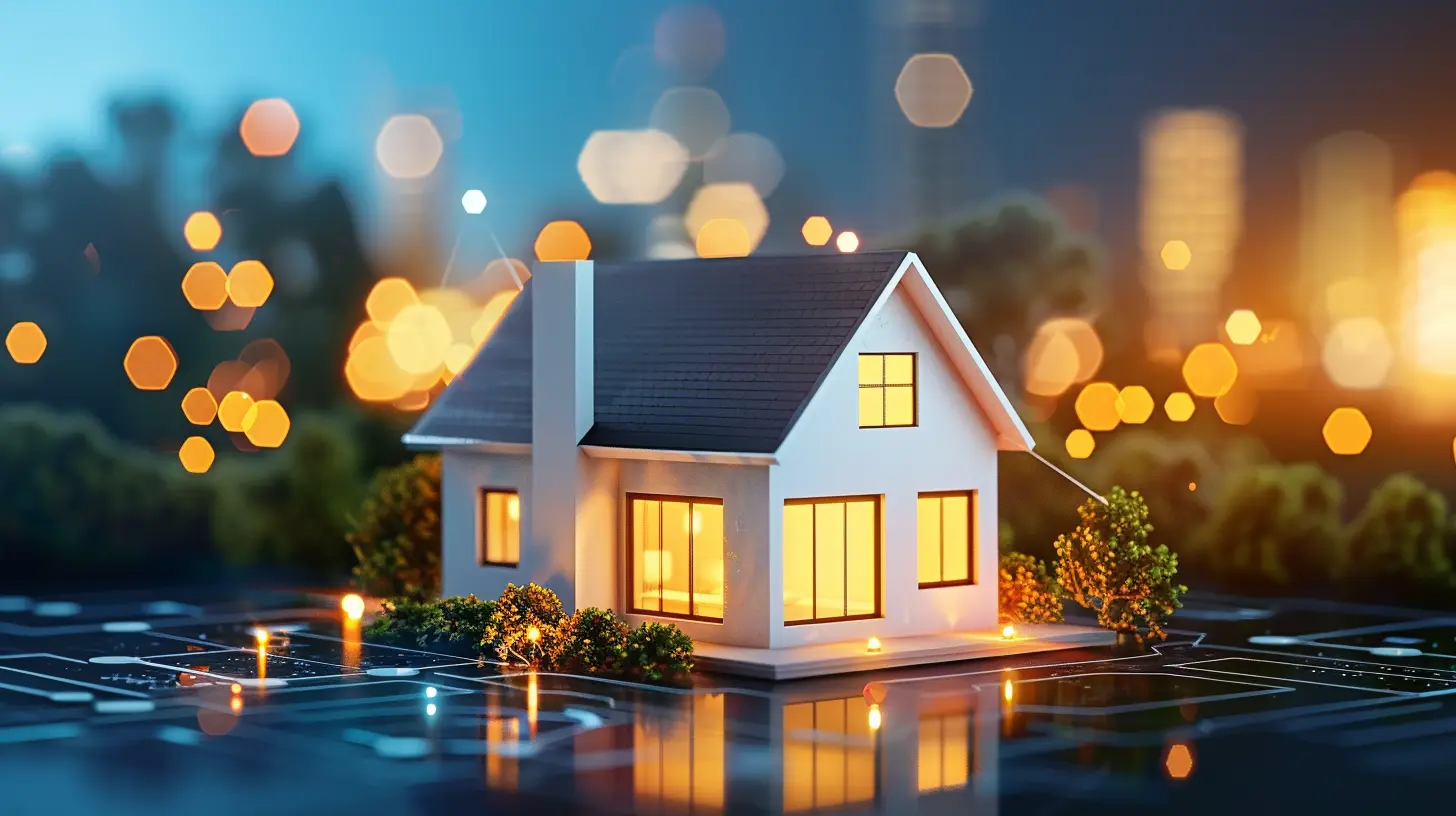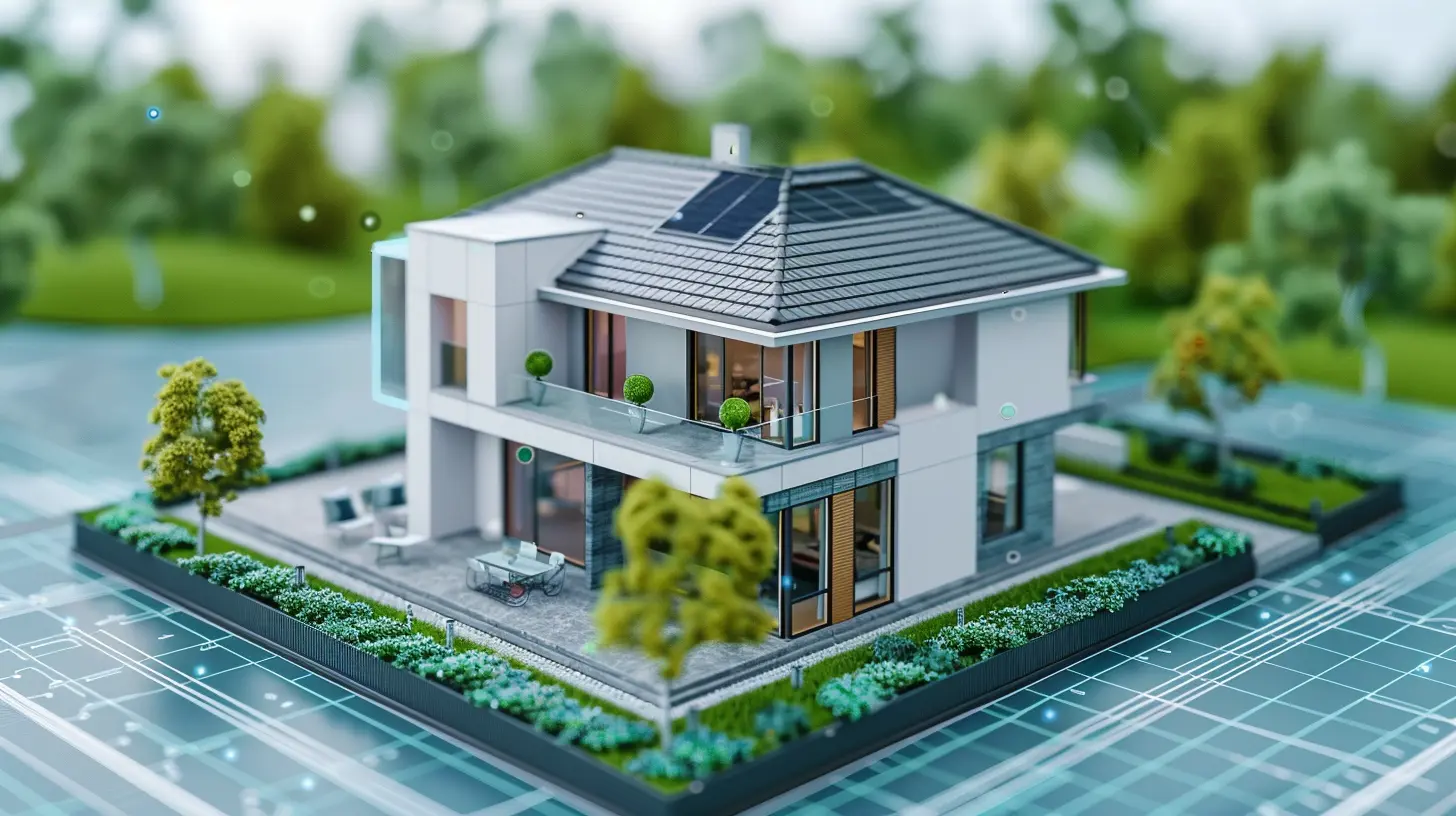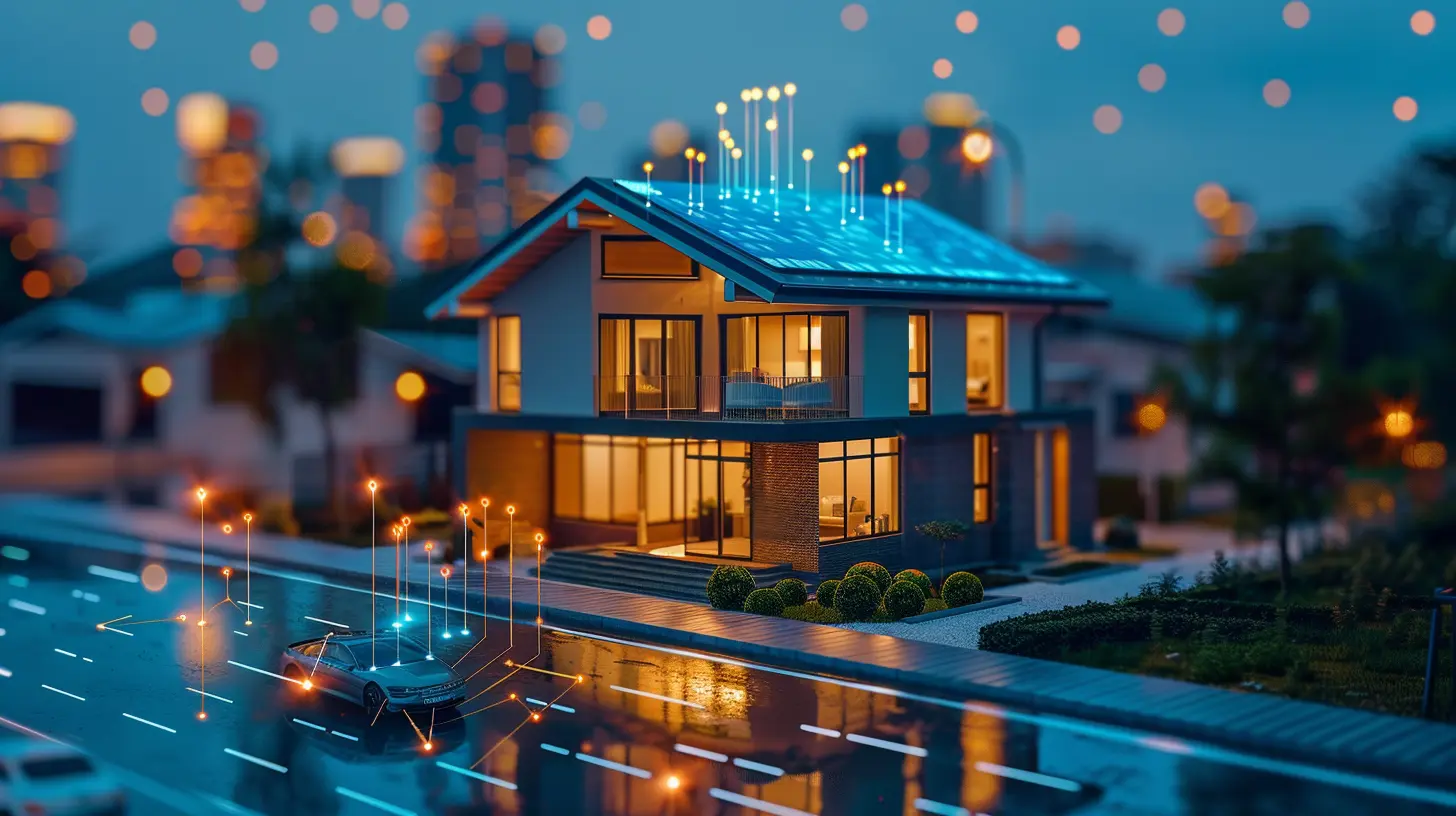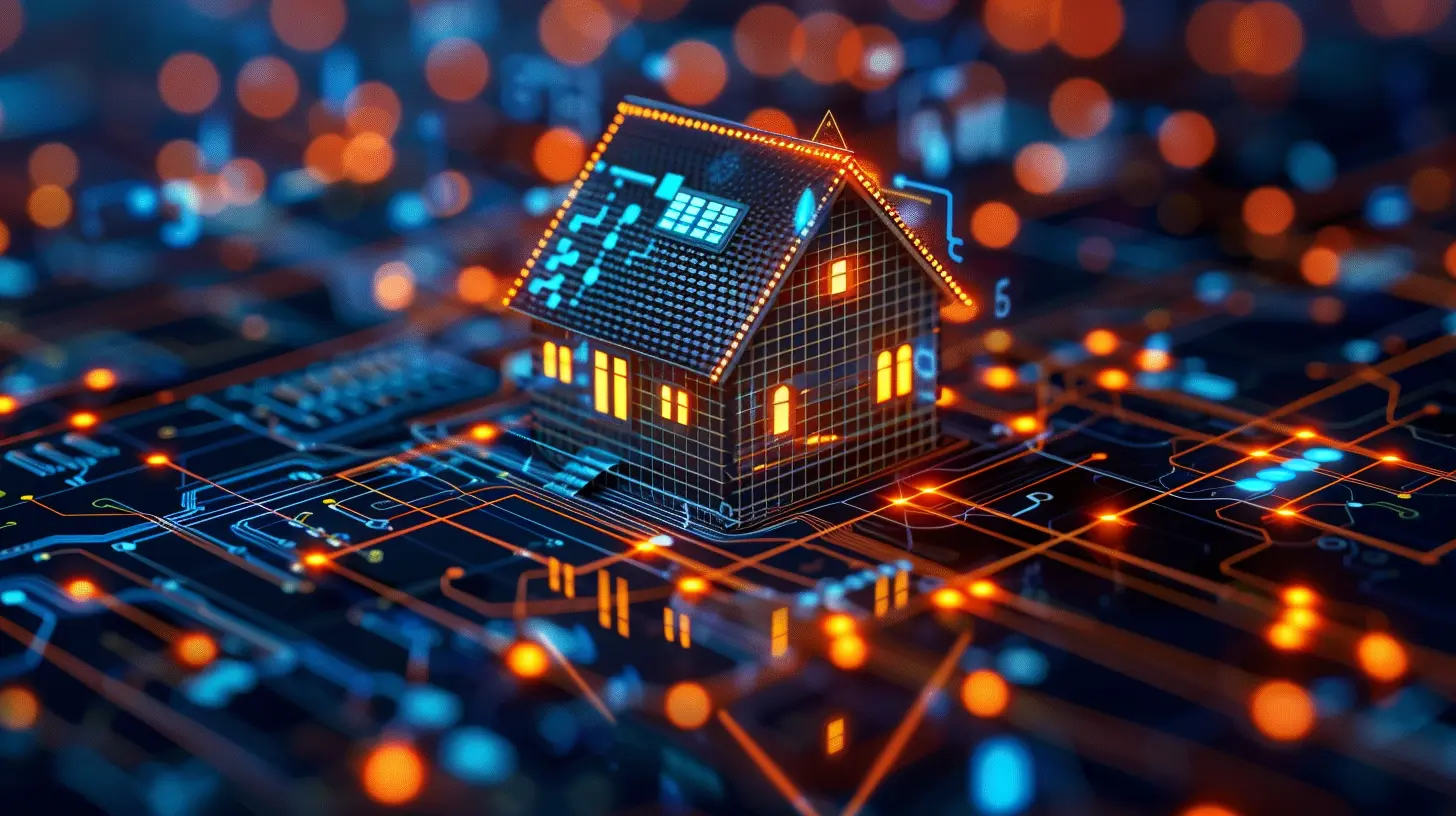The Future of Smart Home Technology in Real Estate Investments
5 May 2025
Technology is changing everything, and real estate is no exception. Just like smartphones revolutionized communication, smart home technology is transforming how we buy, sell, and invest in properties. But is it just a trend, or is it here to stay? More importantly, how does it impact real estate investments?
Let's break it down and see why smart homes are the future of real estate. 
What is Smart Home Technology?
In simple terms, smart home technology refers to devices and systems that automate tasks in a home. Think of voice-controlled lights, app-controlled thermostats, or security systems that alert you on your phone. These gadgets are interconnected, making homes more efficient, secure, and convenient.From an investment standpoint, smart homes attract buyers and renters rapidly. After all, who wouldn’t want a home that practically runs itself? 
Why Smart Home Technology is Revolutionizing Real Estate Investments
1. Increased Property Value
Smart features are no longer just fancy add-ons; they’re selling points. A tech-equipped home typically commands a higher price than a conventional one. Buyers are willing to pay more for security systems, energy-efficient appliances, and automated living.For investors, this means higher resale values and a better return on investment (ROI). The smarter the home, the more attractive it becomes in competitive markets.
2. Energy Efficiency Saves Money
Homes with smart thermostats, solar energy monitoring, and automated lighting help reduce energy consumption. This isn't just good for the environment—it’s great for your wallet.Lower utility bills appeal to homeowners and renters, making the property more desirable. Investors who integrate these features see a higher demand for rentals and fewer vacancies.
3. Enhanced Security and Safety
Security is a top concern for homeowners and renters alike. Smart security systems with remote surveillance, doorbell cameras, and motion detectors provide an extra layer of protection.From an investment perspective, properties with advanced security systems attract reliable tenants and reduce potential liabilities. Whether you're renting out or selling, peace of mind is a huge selling factor.
4. Attracting High-Quality Tenants
Millennials and Gen Z are stepping into the housing market, and they’re all about smart living. They prefer homes that integrate technology for convenience and efficiency.As an investor, adding smart-home features makes your property stand out, ensuring you attract tech-savvy tenants who are willing to pay premium rents.
5. Remote Property Management
If you’re a landlord or property investor, smart technology makes management effortless. Features like keyless entry, automated maintenance alerts, and remote surveillance allow for better tenant interactions and less hands-on management.This is especially beneficial for investors managing multiple properties or investing in real estate remotely. 
How Smart Home Technology is Evolving
Smart homes aren’t just about WiFi-enabled thermostats anymore. The technology is advancing rapidly, and the future promises even more innovations.Artificial Intelligence (AI) Integration
AI is making smart homes even smarter. Imagine a home where your thermostat learns your schedule and adjusts the temperature automatically. Or a kitchen that suggests recipes based on available ingredients.Investing in AI-driven properties could increase long-term value since these homes offer a truly personalized living experience.
5G-Powered Homes
With 5G rolling out, smart home devices will run faster and more efficiently. This will improve automation, reduce lag times, and create seamless connectivity for homeowners.As 5G adoption grows, properties equipped with smart infrastructure may see higher demand in the market.
Blockchain in Real Estate Transactions
Blockchain technology is set to streamline property transactions, reducing fraud and simplifying processes like lease agreements and smart contracts. This will make real estate investments safer and more efficient.For investors, this means faster, transparent deals and the possibility of tokenized real estate investments. 
Should Real Estate Investors Focus on Smart Home Technology?
Absolutely. The world is moving towards automation, and properties that lack smart features could fall behind in value and demand.If you’re an investor, adopting smart technology can give you a competitive edge. The key is to identify profitable tech upgrades without overspending.
Challenges and Considerations
Of course, no innovation is without challenges. Smart home technology comes with a few hurdles investors should keep in mind:- Initial Costs – Installing smart systems can be expensive, but the ROI often outweighs the costs in the long run.
- Privacy Concerns – With increased connectivity comes the risk of hacking. Ensuring strong cybersecurity measures is essential.
- Technology Aging – Innovations evolve quickly, meaning smart devices can become outdated. Regular updates or flexible infrastructure can help maintain relevance.
Despite these concerns, the demand for smart homes is only increasing. Investors who adapt early will reap greater rewards in the future.
Final Thoughts
Smart home technology is no longer a luxury—it’s becoming a necessity. From increasing property values to offering seamless management and security, the benefits for real estate investors are undeniable.If you’re looking to future-proof your investments, embracing smart technology isn’t just a good idea—it’s essential. As homes get smarter, so should your investment strategy.
The question is: Will you be ahead of the curve, or will you get left behind?
all images in this post were generated using AI tools
Category:
Real Estate InvestmentAuthor:

Vincent Clayton
Discussion
rate this article
7 comments
Zara McKinley
Smart home technology is not just a trend; it’s a game-changer for real estate investments. Embrace innovation now to maximize value and attract modern buyers. The future is here!
May 16, 2025 at 7:53 PM

Vincent Clayton
Thank you for your insight! I completely agree—smart home technology is revolutionizing the real estate landscape, enhancing property value and appeal to today's tech-savvy buyers. Embracing these innovations is essential for future success.
Tala Harper
This article insightfully highlights the transformative role of smart home technology in real estate investments. Embracing these innovations can enhance property value and attract tech-savvy buyers, shaping the industry's future. Great read!
May 16, 2025 at 3:50 AM

Vincent Clayton
Thank you for your thoughtful comment! I'm glad you found the article insightful—smart home technology truly is reshaping the real estate landscape.
Dash Willis
Smart homes: where tech meets bricks, transforming real estate into tomorrow's lucrative investment frontier.
May 11, 2025 at 6:55 PM

Vincent Clayton
Absolutely! Smart homes are reshaping real estate by enhancing property value and attracting tech-savvy investors. It's an exciting shift towards a more integrated living experience.
Anastasia Scott
This insightful article highlights the exciting potential of smart home technology in real estate. Embracing these innovations not only enhances property value but also creates more sustainable and convenient living spaces for future generations.
May 10, 2025 at 8:32 PM

Vincent Clayton
Thank you for your insightful comment! I'm glad you found the potential of smart home technology in real estate exciting.
Desiree McCoy
Smart home technology is revolutionizing real estate, enhancing property values and attracting tech-savvy buyers. Embracing these advancements is key to future investment success.
May 8, 2025 at 12:40 PM

Vincent Clayton
Absolutely! Embracing smart home technology is essential for maximizing property value and appealing to modern buyers in today's real estate market.
Rowan McCarron
Great insights on smart home technology's impact on real estate! Emphasizing energy efficiency and security features can attract tech-savvy buyers. Looking forward to seeing how these innovations shape investment strategies in the coming years.
May 6, 2025 at 12:14 PM

Vincent Clayton
Thank you! I appreciate your feedback and completely agree—energy efficiency and security are key factors that will influence buyer preferences and investment strategies in the evolving real estate landscape.
Holly Morrow
Embrace the revolution! Smart home technology is transforming real estate investments, enhancing value and living experiences—seize the future today!
May 5, 2025 at 4:59 AM

Vincent Clayton
Absolutely! Smart home technology is indeed reshaping real estate, offering both increased value and improved living experiences. It's an exciting time to invest!
MORE POSTS

Handling Negative Reviews for Your Vacation Rental Property

Mortgage Forbearance: Relief Options During Financial Hardship

How to Find Off-Market Properties in Competitive Areas

How to Mitigate Risks in Commercial Real Estate Investments

Understanding Triple-Net Leases in Commercial Real Estate

Property Maintenance Contracts: What You Should Know and Expect